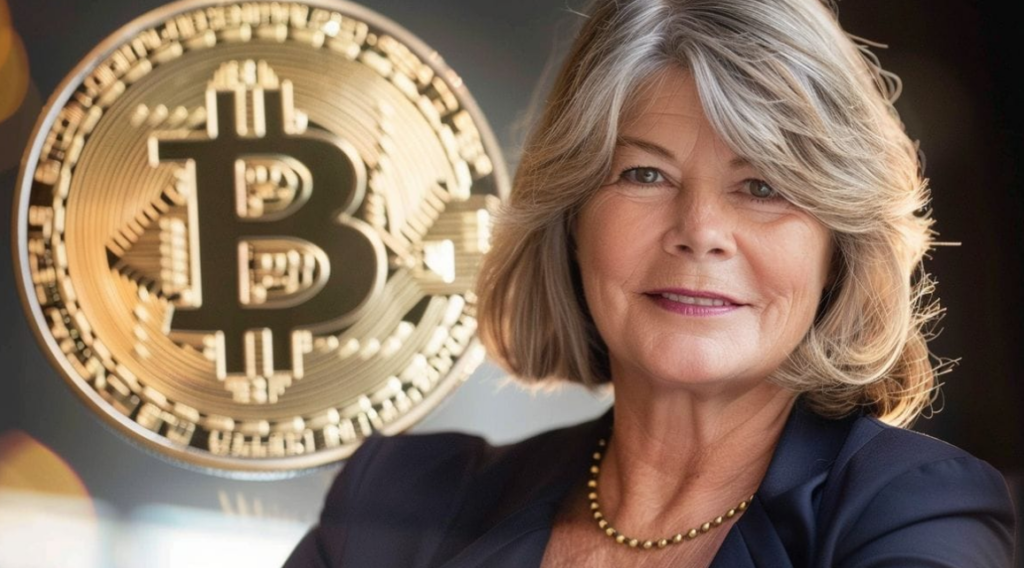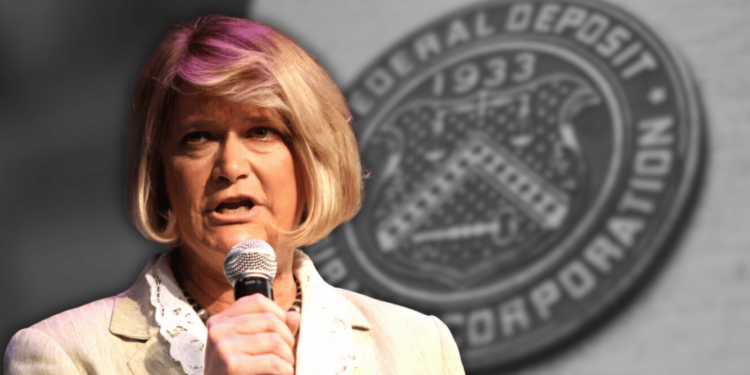- Senator Lummis has warned the FDIC to preserve all OCP 2.0-related documents or face criminal referrals.
- Whistleblowers allege staff are being monitored and threatened to prevent disclosures.
- Court orders and lawsuits continue to pressure the FDIC to fully cooperate, as crypto advocates demand transparency.
Senator Cynthia Lummis is not pulling punches. The Wyoming lawmaker has issued a stern warning to the FDIC, threatening criminal referrals for any staff involved in allegedly destroying documents tied to what’s being called Operation Choke Point 2.0 (OCP 2.0).
The accusations, brought to light by whistleblowers within the Federal Deposit Insurance Corporation, claim that some agency insiders are deliberately withholding or even destroying files connected to an alleged anti-crypto initiative. This so-called OCP 2.0 reportedly aims to block crypto companies from accessing essential banking services, effectively squeezing the industry.
Whistleblowers Sound the Alarm
In a scathing letter dated January 16, Lummis called out FDIC Chair Marty Gruenberg directly. She demanded that all records related to OCP 2.0—particularly those involving the closures of Signature Bank and Silvergate Bank—be preserved.
“I’ve been told that some staff members are being closely monitored to prevent them from sharing key materials with the Senate,” Lummis wrote. “Even worse, there are reports that certain employees have been threatened with legal action to keep quiet. This isn’t just wrong; it’s illegal.”
Her message couldn’t have been clearer: any evidence of document tampering or obstruction will result in swift criminal referrals to the Department of Justice.

Crypto Advocates Cheer the Push for Justice
Nic Carter, a prominent crypto advocate, reacted emotionally to Lummis’ stand. “Almost shed a tear reading this,” he posted on X (formerly Twitter). “Justice is coming. We’ve fought for two years now for the truth, and we’re finally going to get it.”
The ongoing battle over OCP 2.0-related documents has put the FDIC under intense scrutiny. Crypto heavyweights like Coinbase have even resorted to legal action, suing the agency for access to critical files—including the infamous “pause letter,” which allegedly instructed banks to cut ties with crypto companies.
Court Orders and the Fight for Transparency
The courts haven’t gone easy on the FDIC either. After an initial order to hand over documents, Coinbase criticized the agency for submitting files so heavily redacted they were nearly useless.
A second court order accused the FDIC of acting in bad faith and demanded full transparency. Following this legal pressure, the agency surprisingly released additional documents, which Coinbase CLO Paul Grewal said revealed attempts to cover up OCP 2.0’s activities.
Leadership Shake-Up Could Change the Game
Adding another layer to the saga, FDIC Chair Marty Gruenberg has announced his resignation, coinciding with the upcoming Trump administration. Gruenberg’s departure could mark a turning point in the agency’s approach to crypto.
For now, Lummis’ letter serves as a clear signal: the Senate won’t back down in its pursuit of accountability. Whether the FDIC complies or digs in deeper, this fight is far from over—and the stakes for the crypto industry couldn’t be higher.














